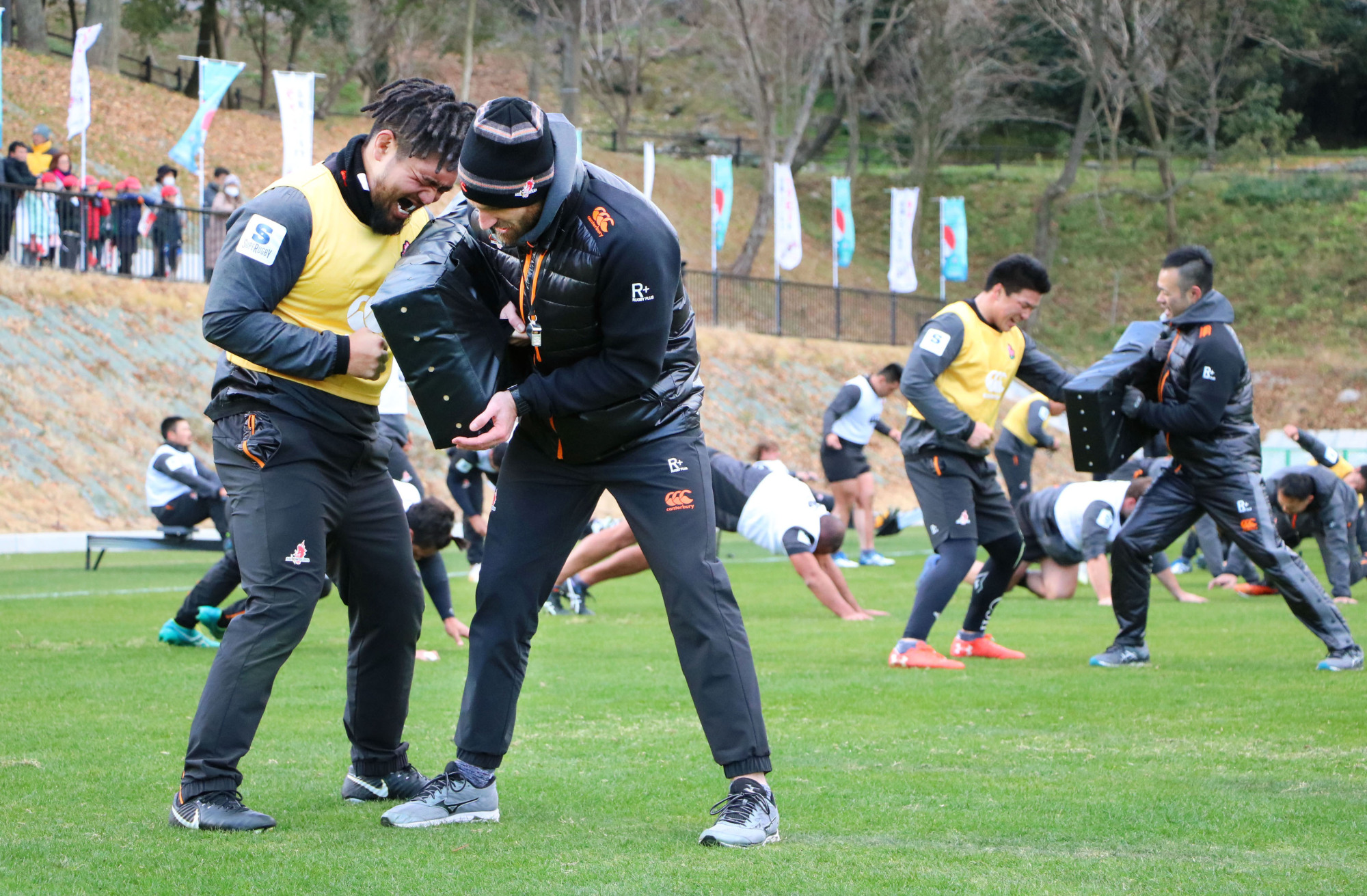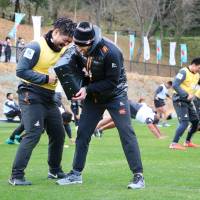The Sunwolves may be on their third head coach in as many years, but some things remain the same as Jamie Joseph explained during a recent break in preseason camp.
"This team's biggest challenge has always been the inability to have a break between seasons and the fact we don't have enough time to prepare properly for a Super Rugby competition that lasts six months," said Joseph, who has taken over the running of the team from Mark Hammett and Filo Tiatia.
Kenki Fukuoka's recent withdrawal from camp is proof of that. The Olympian is out for at least four weeks due to an ongoing knee injury that he played with during the recently completed Top League season.
"It is not perfect and it hasn't been fixed," said Joseph. "It's a bit better than last year by about 12 days. But we are competing against teams that have six weeks off, two months of preseason and three (warm-up) games."
"Our preparation is two weeks in Kyushu, one week in Tokyo and then we have to be ready for the Brumbies (on Feb. 24)."
Joseph, who also doubles up as head coach of the Japan national team, said the Sunwolves have to put aside those issues as they try to prove the doubters wrong.
Japan's Super Rugby franchise has won just three and drawn one of the 30 games it has have played, leaving many overseas observers to ask why the Sunwolves remain in the competition when three other sides have been cut.
"Mentally we can't go into a Super Rugby season worrying about the lack of preparation and how tired we are. For us to win games we have to be prepared to deal with those situations," Joseph said.
"Our game plan is coming together quickly because the attitude is great and the players are learning quickly. And the players seem to be getting better every day. But we have to build a team before we build a game plan. If we don't have a team then we have nothing."
Joseph said part of that team-building would to be to try and ensure there was more stability regarding selection, with players rotating in and out of the squad a thing of the past.
"One of the learnings from last year was having players coming in and out of the Super Rugby season affected the Sunwolves' performance. Mentally, the players came in with the wrong mind sets. This year we will pick the best players and then concentrate on who gets a rest leading into the June test series."
Joseph said as coach of two teams he needed to create two different playing environments with the same players.
"There will be differences between the Sunwolves and the national team," he said, calling the Brave Blossoms an amateur team that played six games a year while the Sunwolves are a professional outfit that are together for over six months a year.
"There will (however) be consistencies with the game plan as that was the reason the JRFU (Japan Rugby Football Union) wanted to bring a team into Super Rugby."
Joseph, who led the Highlanders to the Super Rugby title in 2015, said while the Sunwolves did not have enough experience to top the rankings they did have enough experience to win games.
"I am in my eighth season in this competition and I know when you start winning games confidence snowballs."
The Sunwolves, who will be captained this year by Willie Britz and Yutaka Nagare, are no longer in the South African Conference, which ensures far less time will be spent in the air.
As members of the Australian Conference in the new 15-team format, Joseph's team will take on the Rebels, Reds, Waratahs and Brumbies home-and-away. They will also play four sides from both South Africa and New Zealand.
Six of their home games will be played at Tokyo's Prince Chichibu Memorial Rugby Ground — including the first two games of the season against the Brumbies and Rebels (a week later on March 3) — with Hong Kong and Singapore also hosting a game apiece.




